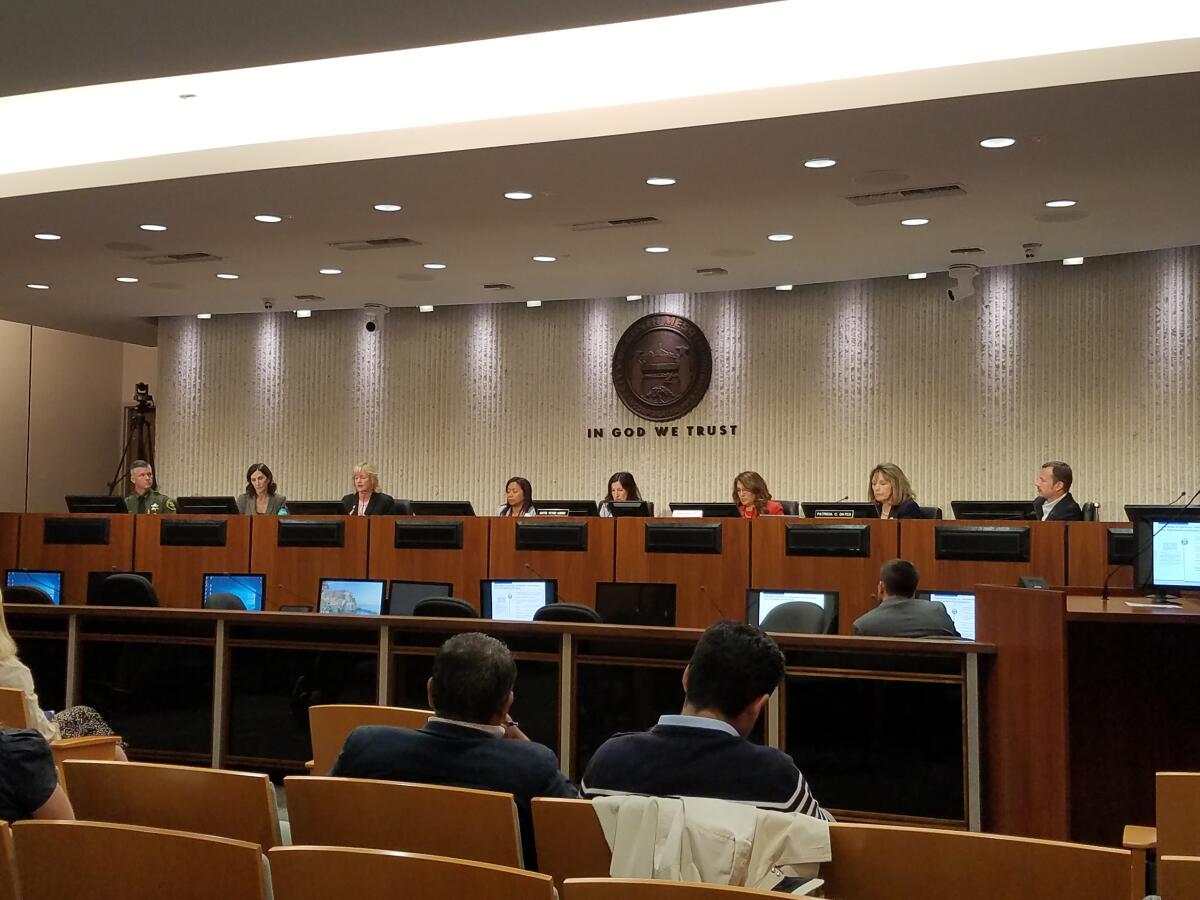Legislators and others push for stronger regulation of addiction-treatment industry at Costa Mesa hearing

- Share via
Of all the things experts believe are needed to more effectively regulate and oversee California’s substance abuse treatment industry, perhaps the most important can be summed up in one word: teeth.
The term came up several times at Costa Mesa City Hall on Wednesday as legislators, law enforcement officials, health professionals and industry representatives emphasized the need to fashion a robust regulatory framework that includes the resources to monitor and ensure the quality of treatment facilities while providing for enforcement that has, yes, some teeth.
State Assemblywoman Cottie Petrie-Norris (D-Laguna Beach) led the informational hearing of the Assembly Accountability and Administrative Review Committee, which she chairs.
During about three hours, she and two of her colleagues in the Legislature — Assemblywoman Sharon Quirk-Silva (D-Fullerton) and state Sen. Patricia Bates (R-Laguna Niguel) — listened to input from residents and panels of speakers about how best to tackle problems in the addiction-treatment industry.
“There’s a ton of work that we need to do here,” Petrie-Norris told the crowd of more than 60. “This is such an important issue. You’ve heard from so many people whose lives have been impacted by addiction and I think we, as policymakers, need to do everything that we can to ensure that here, in the state of California, we are offering people who are grappling with addiction the best programs possible.”
Suggestions from panelists and the public included conducting surprise inspections of facilities, establishing standards of quality for them and requiring the state to license all outpatient treatment facilities, as Petrie-Norris has pushed for.
Orange County Assistant Sheriff Jeff Hallock said residential addiction-treatment facilities can account for many calls for emergency services and can affect neighborhoods significantly, though “the force of law is often merely a citation or a nuisance violation.”
The Sheriff’s Department, he added, “will issue citations, will continue to respond to calls, will work to resolve problems, but without proper regulatory backbone for this industry, our efforts cannot be successful.”
Communities around Orange County and the state have for years contended with the effects of residential addiction-treatment facilities and sober-living homes. Those establishments typically house recovering alcoholics and drug addicts, who are considered disabled under state and federal laws.
Critics contend the facilities can create quality-of-life issues by contributing to parking and traffic problems, increased crime and noise, litter, secondhand smoke and more.
However, officials say the problems go far beyond neighborhood annoyances. Some in the industry have been accused of exploiting or mistreating patients, committing insurance fraud, using deceptive marketing and contributing to the homeless population by evicting some of their residents onto the street with no support — a practice known as “curbing.”
Costa Mesa Mayor Katrina Foley said some unscrupulous operators have gone as far as create a “model of relapse, not recovery” — boosting their bottom lines by intentionally exposing patients to drugs so they cycle through their programs multiple times.
Petrie-Norris said tackling some of the industry’s bigger fundamental problems also will help alleviate the neighborhood impacts.
“Good operators, good actors, people that are really helping people get back on the road to recovery, they’re also good neighbors,” she said.
All the latest on Orange County from Orange County.
Get our free TimesOC newsletter.
You may occasionally receive promotional content from the Daily Pilot.




